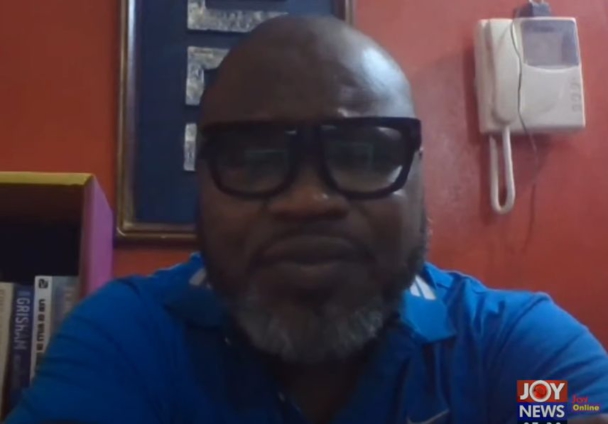
Audio By Carbonatix
The Executive Director of Africa Education Watch, Kofi Asare, has thrown his weight behind the University Teachers Association of Ghana's (UTAG) call for urgent government action to address the worsening lecturer shortfall across public universities.
Speaking on Joy FM’s Newsnight on Tuesday, May 20, Mr Asare revealed that only 20% of academic staff who exited public tertiary institutions between 2022 and 2024 were replaced, leaving a significant staffing deficit in the country's higher education sector.
“If you look at the data, between 2022 and 2024, only about 20% of staff who exited from our public universities were replaced. It means there’s still a huge gap," he stated.
His comments come on the heels of UTAG’s appeal to government to grant financial clearance for the recruitment of 1,500 additional lecturers. The association argues that the shortage of academic staff is undermining the quality of education in public universities and putting undue pressure on the limited number of lecturers still in post.
Mr Asare noted that government policies such as the no-fee stress policy, aimed at expanding access to higher education, are expected to boost student enrollment significantly. However, the lack of a proportional investment in staffing, he said, risks overwhelming institutions.
“Where we are expanding access to education, we must at least replace the number of staff who exit, if not increase it in line with rising enrollment. It’s a very critical issue,” he stressed.
He further explained that the government’s inability to absorb new staff onto the consolidated fund, which pays public sector salaries, has forced universities to rely heavily on Internally Generated Funds (IGF) to pay existing lecturers.
“In 2023, close to 75% of all IGF collected by public tertiary institutions went into paying staff salaries,” he said. “This year, universities are expected to generate about GH¢2.7 billion in IGF, and GH¢800 million of that is projected to be used for salaries.”
This trend, Asare warned, is unsustainable. IGF, which was originally meant to fund infrastructure and academic improvements, is now being depleted by recurring compensation costs. He cautioned that if the government fails to act, universities may lose the financial ability to invest in learning resources, facility upgrades, and student support systems.
Latest Stories
-
Gov’t pumps GH¢40m into film and creative arts sector
4 minutes -
Mahama defends cocoa price revision, promises sector reset
10 minutes -
You don’t need to have a comfortable bed to save a patient — Mahama to healthcare professionals
23 minutes -
Mahama announces national airline and major upgrades for Accra, Sunyani, Bolgatanga, and Wa Airports
25 minutes -
Foreign remittances hit $7.8bn in 2025 – Mahama
28 minutes -
Mahama pledges to end ‘no bed syndrome’ and expand hospital capacity nationwide
35 minutes -
No patient must be turned way over lack of hospital beds – President Mahama
36 minutes -
SONA 2026 in Pictures
38 minutes -
Mahama vows to go after ‘big fishes’ in galamsey fight, reveals intensified prosecutions
46 minutes -
Alarm Bells in Mogadishu: Security erodes as Al-Shabaab races towards “Greater Somalia”
47 minutes -
Mahama unveils TVET centres, SHS upgrades and 50,000 teachers’ housing plan
49 minutes -
‘December 19, 2022, under Akufo-Addo was one of the darkest days in Ghana’s economic history’ – Mahama
55 minutes -
John Mahama: Cedi soars 40.7% as Ghana’s economy surpasses $100bn
57 minutes -
Ghana clears $500m gas debt, restores World Bank guarantee – Mahama
1 hour -
Mahama announces plans to reintroduce road tolls using technology
1 hour

